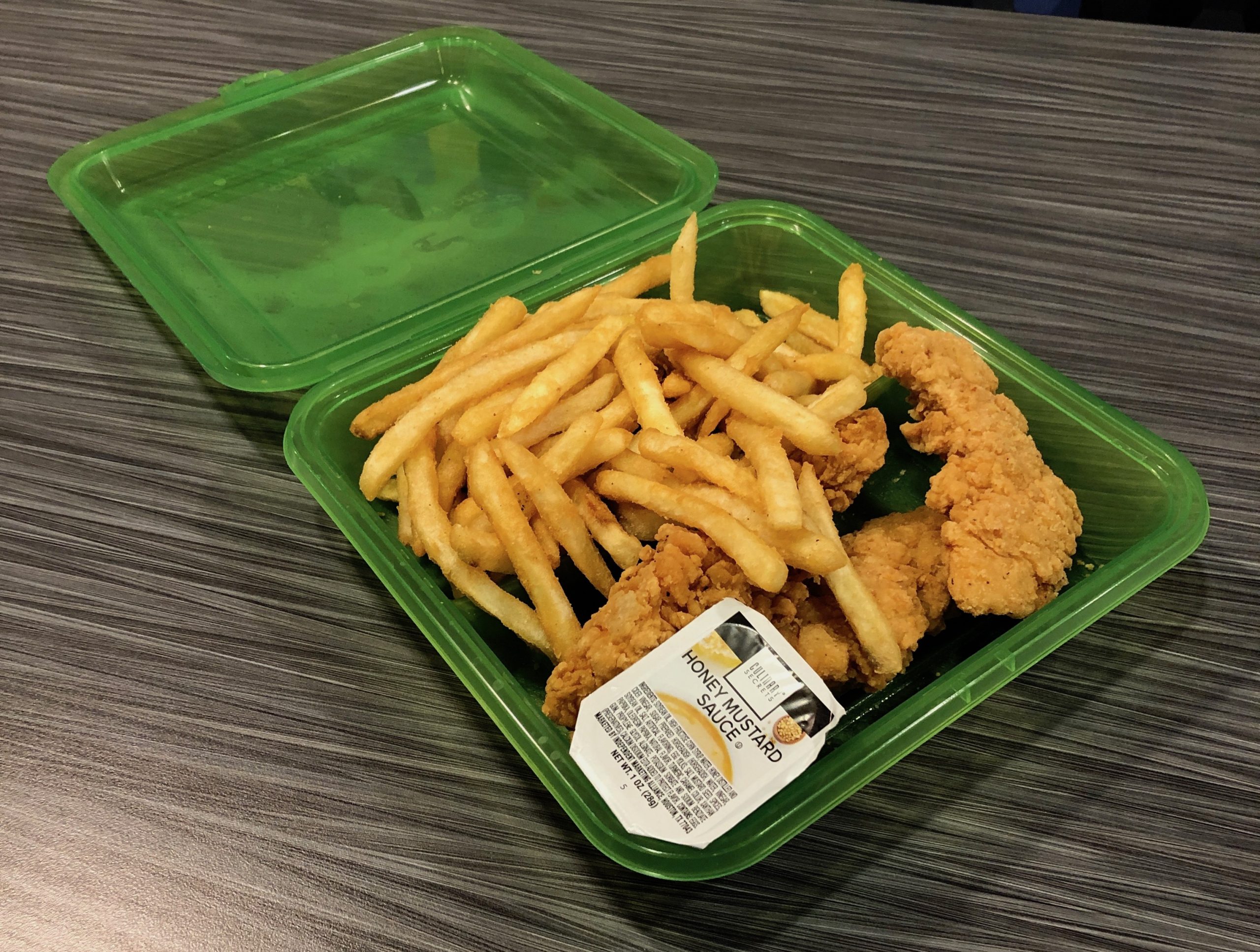For more than six years, Concordia’s Maize has offered an eco-friendly service that has gone widely unrecognized and barely utilized: Green To Go containers.

Unlike the disposable containers that are typically dispersed by Concordia’s dining services, these containers are made out of reusable material and are designed to be long-lasting. They are roughly 8 inches by 8 inches in size and fit easily into backpacks and purses. With three different compartments, students can store different foods without them touching one another.
Using the program is a straightforward process. To become involved, one simply has to ask a Maize staff member for a container and pay an upfront fee of five dollars. After doing this, one can choose to either eat their food in the Maize or to take it to go. When the student is done with the container, they can simply return it to the Maize upon their next visit.
Participants have two options when returning the containers: they can either return the container and receive their five dollars back, or they can opt to receive a token that signifies to the Maize staff that they are engaging in the Green to Go program. With the token, partakers can use Green To Go containers whenever they please.
Since the program was first launched in 2014, the Green To Go containers have made an appearance on campus multiple times. According to Nicole Crouch, the Director of Dining Services, the program had its highest participation rate in 2016 with over 100 participants, translating to only four percent of the campus.
Because the program hasn’t been particularly successful in previous years, the containers haven’t always been available in the Maize. However, countless students contacted Concordia’s sustainability office last semester with concerns about the amount of waste being produced by the college’s dining services. In an attempt to alleviate students’ anxieties, the sustainability office met with dining services multiple times and ultimately decided to try launching the Green To Go program once again.
Crouch attributes the relatively low participation rate in past years to a lack of awareness of the program. This time around, the sustainability department is utilizing social media to get the word out about the alternative takeout option. In addition to promoting it on platforms such as Facebook and Instagram, Concordia’s dining services sent out an email to the college’s students and staff regarding the program.
Due to the pandemic, the Maize has had less business throughout the school year. Still, the need for takeout containers has spiked. Because of this, advocates for the reusable containers are hopeful that the program’s success will reach an unprecedented peak this semester.
“We really wanted to have an option for students, faculty and staff to be more sustainable, even in these difficult times,” Crouch said. “This is a great way to do that.”
According to Concordia sophomore and Taste Not Waste intern Kelly Lorenz, using the new containers comes with no drawbacks or disadvantages.
“It’s very simple and it’s a really easy way to reduce waste,” Lorenz said. “I highly recommend it to everyone– it’s painless and there’s no excuse not to use it.”
While there is an upfront fee of five dollars to use the eco-friendly containers, those who utilize them will receive their money back at the end of the semester.
Sustainability efforts at Concordia won’t end with the Green To-Go campaign. A broad category, sustainability encompasses issues such as the conservation of natural resources, as well as reducing food waste and carbon emission. According to Jacclyn Maahs, the Sustainability Coordinator at Concordia, there are several ideas at work within the sustainability department, including the implementation of strawless lids on and recyclable paper plates on campus.
“The next step is thinking about how we reduce food waste and coming up with solutions to reduce some of the other waste materials coming from the dining services,” Maahs said.
The key to maintaining sustainability, Crouch says, is getting everyone in the Concordia community to practice environmentally-friendly behaviors so that they eventually become routines.
“We feel that it’s very important at this time to be as sustainable as possible and to do what we can to reduce the number of containers going out,” Crouch said. “We want to be able to get students, faculty and staff into the habit of doing those green activities.”

